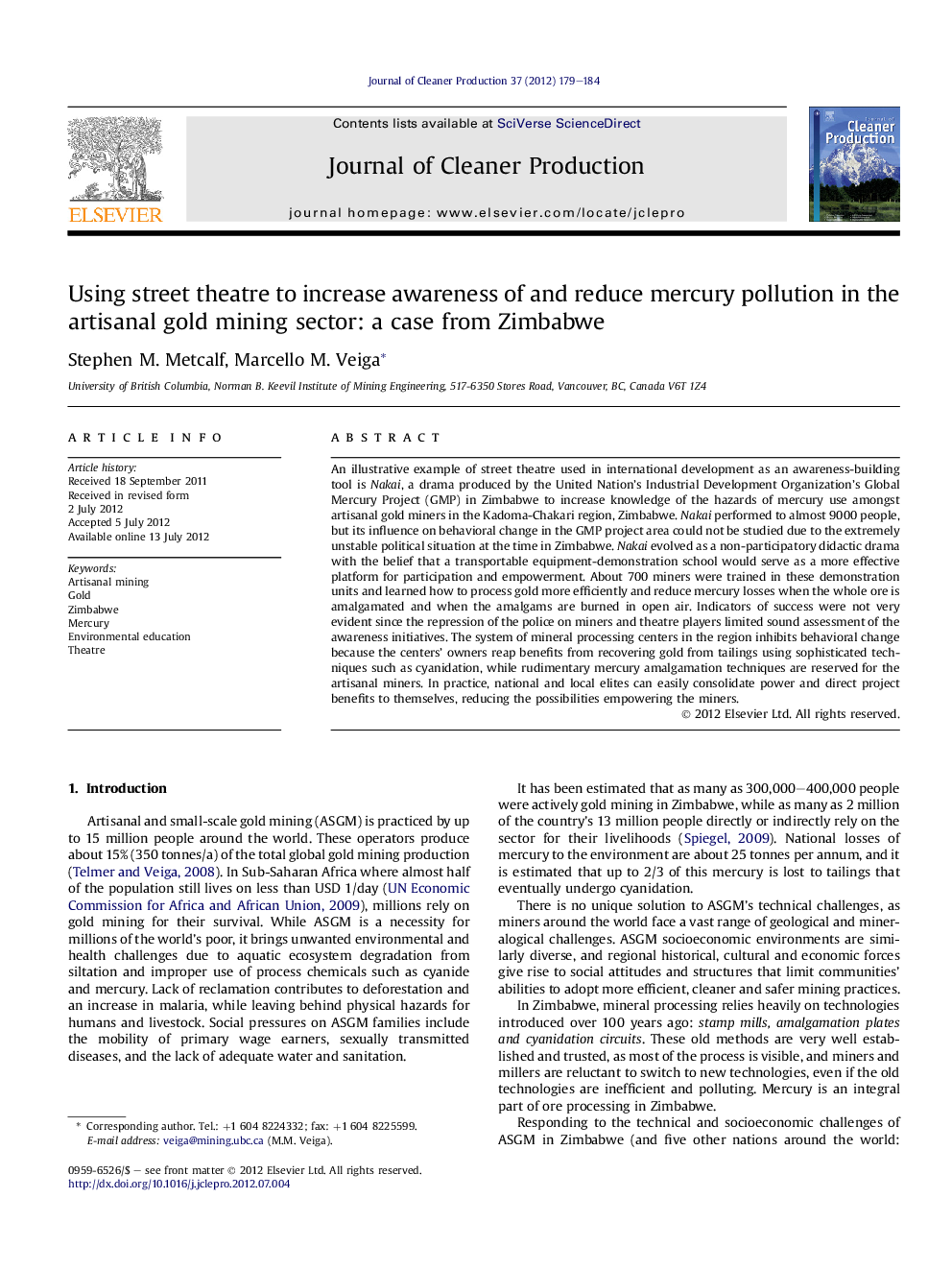| Article ID | Journal | Published Year | Pages | File Type |
|---|---|---|---|---|
| 8107869 | Journal of Cleaner Production | 2012 | 6 Pages |
Abstract
An illustrative example of street theatre used in international development as an awareness-building tool is Nakai, a drama produced by the United Nation's Industrial Development Organization's Global Mercury Project (GMP) in Zimbabwe to increase knowledge of the hazards of mercury use amongst artisanal gold miners in the Kadoma-Chakari region, Zimbabwe. Nakai performed to almost 9000 people, but its influence on behavioral change in the GMP project area could not be studied due to the extremely unstable political situation at the time in Zimbabwe. Nakai evolved as a non-participatory didactic drama with the belief that a transportable equipment-demonstration school would serve as a more effective platform for participation and empowerment. About 700 miners were trained in these demonstration units and learned how to process gold more efficiently and reduce mercury losses when the whole ore is amalgamated and when the amalgams are burned in open air. Indicators of success were not very evident since the repression of the police on miners and theatre players limited sound assessment of the awareness initiatives. The system of mineral processing centers in the region inhibits behavioral change because the centers' owners reap benefits from recovering gold from tailings using sophisticated techniques such as cyanidation, while rudimentary mercury amalgamation techniques are reserved for the artisanal miners. In practice, national and local elites can easily consolidate power and direct project benefits to themselves, reducing the possibilities empowering the miners.
Related Topics
Physical Sciences and Engineering
Energy
Renewable Energy, Sustainability and the Environment
Authors
Stephen M. Metcalf, Marcello M. Veiga,
